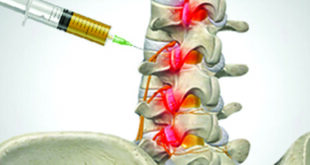 Did you know? An estimated 466 million children and adults live with a disabling hearing impairment, according to the World Health Organization. As one of the top chronic public-health challenges facing families and communities on a global scale, it’s much more common than people realize.
Did you know? An estimated 466 million children and adults live with a disabling hearing impairment, according to the World Health Organization. As one of the top chronic public-health challenges facing families and communities on a global scale, it’s much more common than people realize.
Many also may not realize how far-reaching hearing loss can be, with its links to physical, mental, social, and even financial issues that could affect quality of life. Consider these five examples of problems associated with hearing loss, showing the importance of staying atop your hearing health.
COGNITIVE DECLINE
A growing body of research connects hearing loss to reduced brain function. Older adults with hearing loss, for example, are up to five times more likely than their normal-hearing peers to develop dementia, per a study by Johns Hopkins and the National Institute on Aging. Another study finds that seniors with a hearing condition may experience faster-than-usual brain shrinkage. The good news? Proper use of hearing aids may slow down cognitive decline as much as 75%, per a study published in 2018.
SOCIAL ISOLATION
Hearing plays a big role in everyday interactions with friends, family, neighbors, and colleagues, so it’s no wonder that hearing loss can impact your sense of engagement. Those with untreated hearing loss are less likely to participate in social activities, per a study commissioned by the National Council on Aging. This can help lead to social isolation and other problems. Conversely, seniors treated for hearing loss report significant improvements in their social life, relationships, sense of independence, and more.
DEPRESSION
Multiple studies support a connection between hearing loss and depression. Seniors with hearing loss, for example, may have a 57% greater risk of experiencing deep depression, according to a Johns Hopkins and National Institute on Aging analysis of National Health and Nutrition Examination Survey data. Researchers have also found, however, that the odds of depression may be lower with hearing aid use.
FALLS
Ears not only help with hearing but also contribute to your balancing ability. Research points to the increased likelihood of falls among middle-aged and older adults with hearing loss. Even mild hearing impairment can triple the risk of falling, and every 10-decibel increase in hearing impairment might mean a 1.4-fold increase in the odds of sustaining a fall.
MORTALITY
Hearing loss goes hand in hand with higher mortality. One study published in the Journals of Gerontology Series A: Biological Sciences and Medical Sciences found a 20% greater risk of mortality among adults 70 years and older with hearing impairment. Other research has estimated the increased risk at an adjusted 21% or even an adjusted 39%, depending on the severity of hearing loss.
CALL TODAY to schedule your appointment 863.594.1976
Winter Haven Audiology
510 1st St S | Winter Haven
Ride Audiology
704 SR 60 E | Lake Wales
Sources:
World Health Organization. Deafness and Hearing Loss. https://www.who.int/news-room/fact-sheets/detail/deafness-and-hearing-loss.
Accessed July 11, 2019.
Johns Hopkins Medicine. Hearing Loss and Dementia Linked in Study. https://www.hopkinsmedicine.org/news/media/releases/hearing_loss_and_dementia_linked_in_study. Accessed July 11, 2019.
Johns Hopkins Medicine. Hearing Loss Linked to Accelerated Brain Tissue Loss. https://www.hopkinsmedicine.org/news/media/releases/hearing_loss_linked_to_accelerated_brain_tissue_loss_. Accessed July 11, 2019.
Wiley Online Library. Longitudinal Relationship Between Hearing Aid Use and Cognitive Function in Older Americans.
https://onlinelibrary.wiley.com/doi/full/10.1111/jgs.15363. Accessed July 11, 2019.
NPR. Want to Keep Your Brain Sharp? Take Care of Your Eyes and Ears. https://www.npr.org/sections/health-shots/2018/10/
22/658810909/can-t-hear-well-fixing-hearingloss-can-keep-your-memory-sharper. Accessed July 11, 2019.
National Council on Aging. The Consequences of Untreated Hearing Loss in Older Persons. https://www.ncoa.org/wp-content/uploads/NCOA-Study-1999.pdf. Accessed July 11, 2019.
Johns Hopkins Medicine. Hearing Loss in Older Adults Tied to More Hospitalizations and Poorer Physical and Mental Health.
https://www.hopkinsmedicine.org/news/media/releases/hearing_loss_in_older_adults_tied_to_more_hospitalizations_and_poorer_physical_and_mental_health. Accessed July 11, 2019.
Wiley Online Library. Hearing Loss and Depression in Older Adults. https://onlinelibrary.wiley.com/doi/full/10.1111/jgs.12429.
Accessed July 11, 2019.
Johns Hopkins Medicine. https://www.hopkinsmedicine.org/news/media/releases/hearing_loss_linked_to_three_fold_risk_of_falling.
Hearing Loss Linked to Three-Fold Risk of Falling. Accessed July 11, 2019.
U.S. National Library of Medicine/National Institutes of Health. Association of Hearing Impairment and Mortality in Older Adults.
https://www.ncbi.nlm.nih.gov/pmc/articles/PMC4296166/. Accessed July 12, 2019.
JAMA Otolaryngology-Head & Neck Surgery. Association of Hearing Impairment and Mortality in the National Health and Nutrition Examination Survey. https://jamanetwork.com/journals/jamaotolaryngology/fullarticle/2443702. Accessed July 12, 2019.
 Central Florida Health and Wellness Magazine Health and Wellness Articles of the Villages
Central Florida Health and Wellness Magazine Health and Wellness Articles of the Villages



